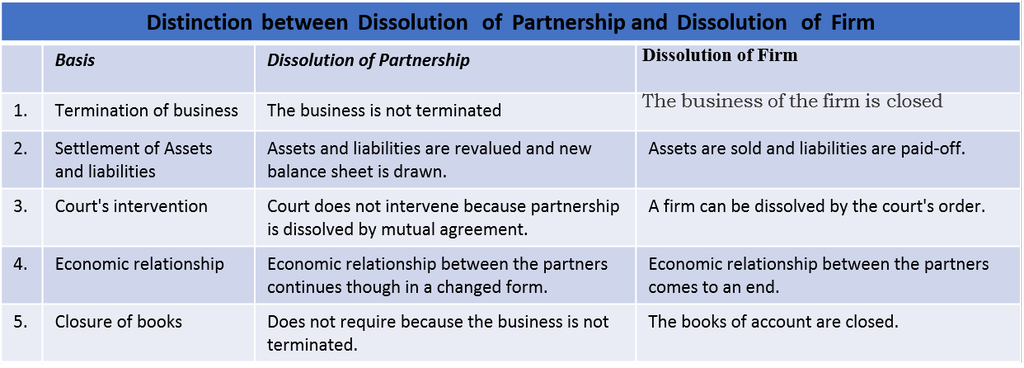- Books Name
- Vision classes Accountancy Book
- Publication
- Vision classes
- Course
- CBSE Class 12
- Subject
- Accountancy
Dissolution of Partnership
Dissolution of a partnership firm may take place without the intervention of court or by the order of a court, in any of the ways specified later in this section. It may be noted that dissolution of the firm necessarily brings in dissolution of the partnership. However, dissolution of partnership would not necessarily involve dissolution of firms.
Dissolution of a firm takes place in any of the following ways:
1. Dissolution by Agreement: A firm is dissolved :
- with the consent of all the partners or
- in accordance with a contract between the partners.
2. Compulsory Dissolution: A firm is dissolved compulsorily in the following cases:
- when all the partners or all but one partner, become insolvent, rendering them incompetent to sign a contract
- when the business of the firm becomes illegal
- when some event has taken place which makes it unlawful for the partners to carry on the business of the firm in partnership, e.g., when a partner who is a citizen of a country becomes an alien enemy because of the declaration of war with his country and India.
3. On the happening of certain contingencies: Subject to contract between the partners, a firm is dissolved :
-
- if constituted for a fixed term, by the expiry of that term
- if constituted to carry out one or more ventures, by the completion thereof
- by the death of a partner
- by the adjudication of a partner as an insolvent
4. Dissolution by Notice: In case of partnership at will, the firm may be dissolved if any one of the partners gives a notice in writing to the other partners, signifying his intention of seeking dissolution of the firm.
5. Dissolution by Court: At the suit of a partner, the court may order a partnership firm to be dissolved on any of the following grounds:
1. when a partner becomes insane
2. when a partner becomes permanently incapable of performing his duties as a partner
3. when a partner is guilty of misconduct which is likely to adversely affect the business of the firm
4. when a partner persistently commits breach of partnership agreement
5. when a partner has transferred the whole of his interest in the firm to a third party
6. when the business of the firm cannot be carried on except at a loss
7. when, on any ground, the court regards dissolution to be just and equitable


 SUDIP CHAKRABORTY
SUDIP CHAKRABORTY
